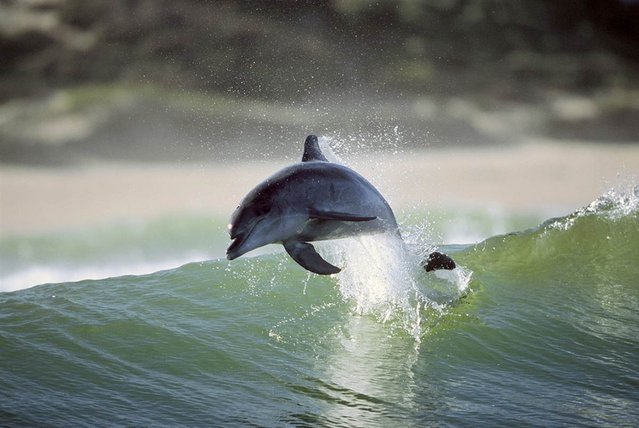
Photographer Greg Huglin of Santa Barbara, Calif., captured these striking images of bottlenose dolphins during three trips to the South African coast between 2000 and 2007. He shot the photos along a stretch of coastline between Port Elizabeth and Wilderness. (Photo by Greg Huglin)
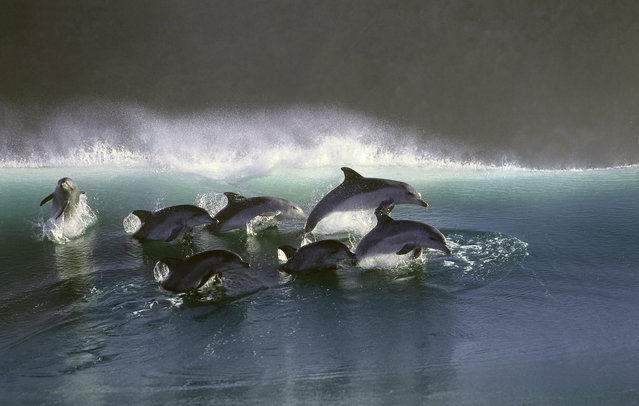
Pod of dolphins surf effortlessly through the waves in the wild traveling at speeds up to 20 mph. (Photo by Greg Huglin)
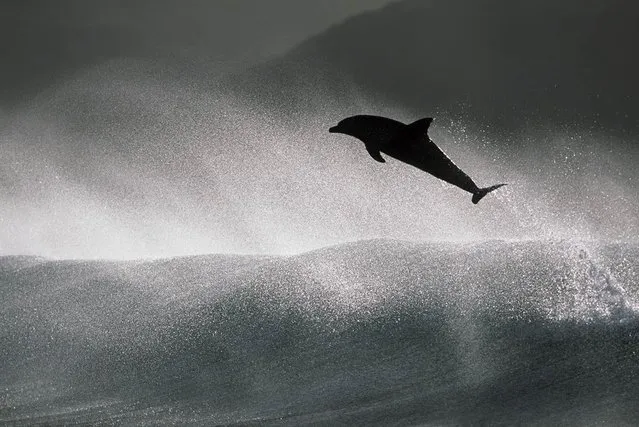
Huglin said it's both humbling and exciting to be in the presence of such powerful animals. “Bottlenose dolphins are the ones that do all the really fancy surfing”, he said. “They’re up to 12 feet long, those suckers. ... When you put your hand on one of them, they’re solid muscle. It’s amazing how powerful they are”. (Photo by Greg Huglin)
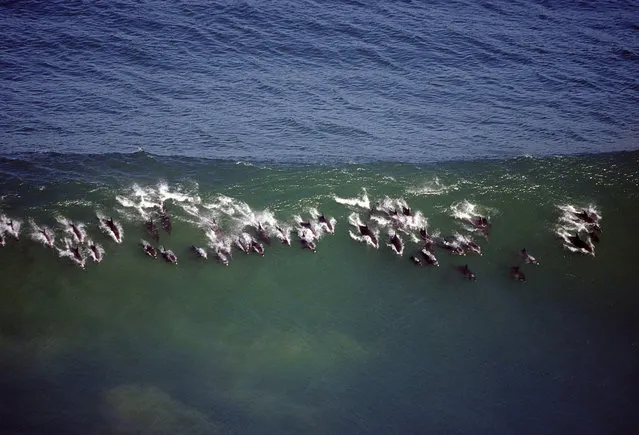
Huglin used a long telephoto lens to shoot this photo from land. “The dolphins are catching the wave just as the wave breaks”, he said. (Photo by Greg Huglin)
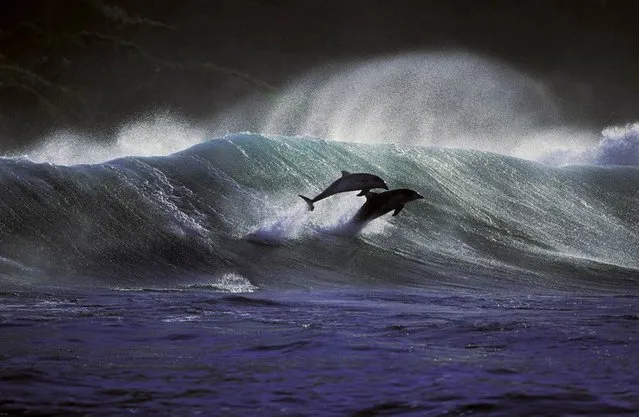
While on his trips to the South African coast, Greg Huglin took photos from a variety of vantage points: From a helicopter, from a motorized sailplane, from a boat in surfline and from land. All of the images were captured with film cameras, not digital cameras. (Photo by Greg Huglin)
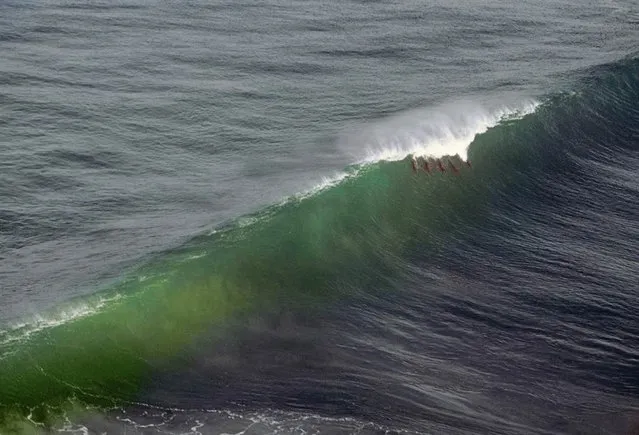
Huglin shot this photo from a motorized sailplane. Five bottlenose dolphins can be seen just taking off on the peak of a wave. “They’re tapping the energy of the wave and being pulled forward”, he said. “This is actually a pretty late takeoff”. (Photo by Greg Huglin)
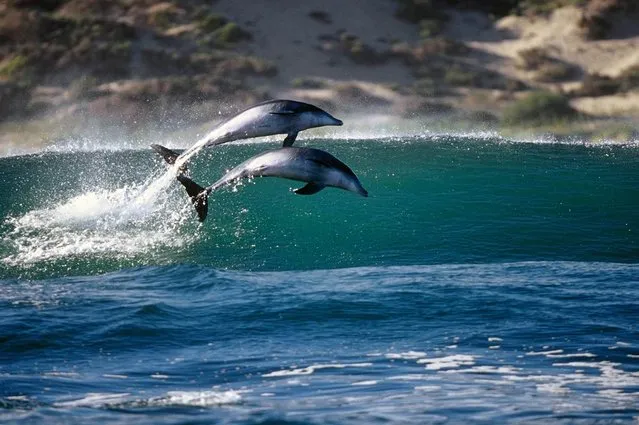
Huglin has spent his entire career photographing and filming great white sharks, dolphins and other sea creatures, as well as extreme water sports. His trips to South Africa have been major highlights of his life. “From sunrise to sunset when I’m down there I’m either shooting great whites or I’m chasing dolphins”, he said. (Photo by Greg Huglin)
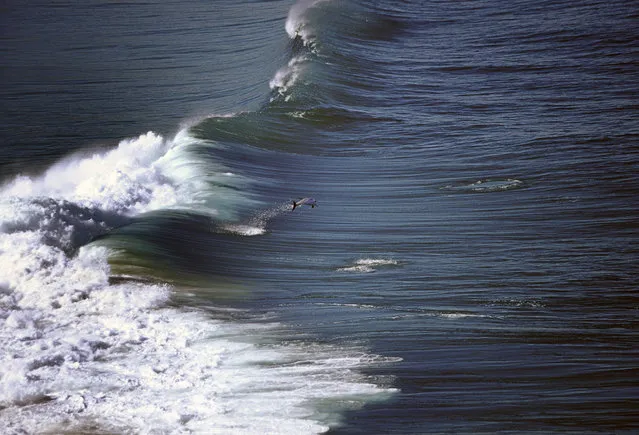
Pod of playful dolphins surfing in waves. (Photo by Greg Huglin)
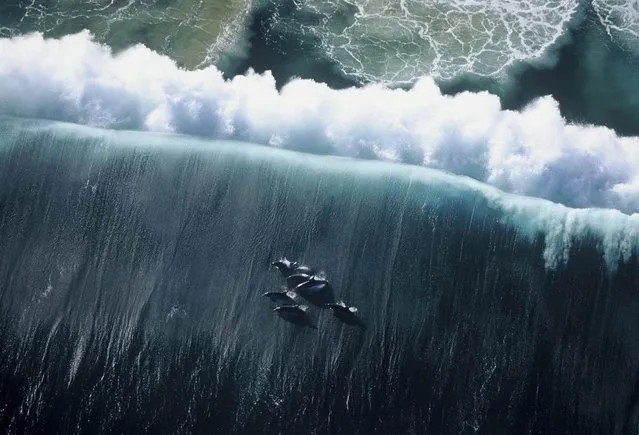
Huglin took this photograph from a helicopter about 1,000 to 1,200 feet above the water. The dolphins are surfacing after a wave has broken, and the color of the water is altered by a plankton bloom. (Photo by Greg Huglin)
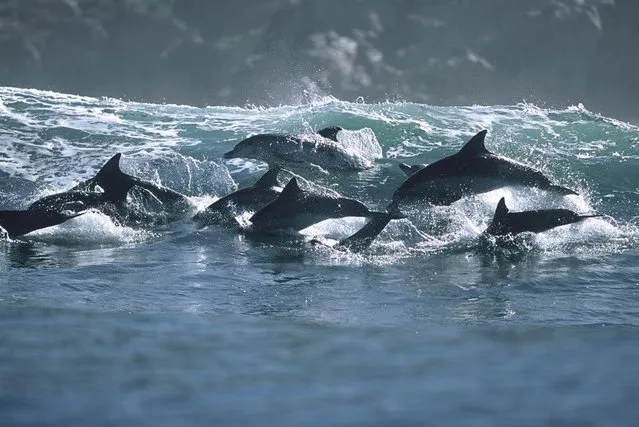
To communicate, bottlenose dolphins emit whistles and squeaks from their blowholes and also make masterful use of body language. In different instances, they will slap their tails on the surface of the water and leap into the air to get a message across. (Photo by Greg Huglin)
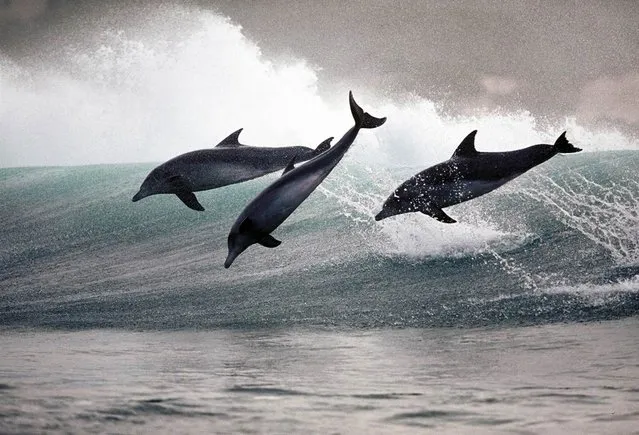
Huglin knows that dolphins often leap into the air for a purpose, but after watching them for hours on end, he also thinks they jump and frolic just for the fun of it. “I can’t help but think they do it because they can and because it’s really fun”, he said. “Wouldn’t you do that if you could?” (Photo by Greg Huglin)
01 May 2012 11:43:00,
post received
0 comments
